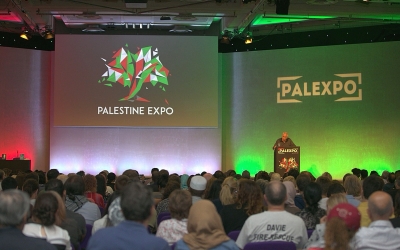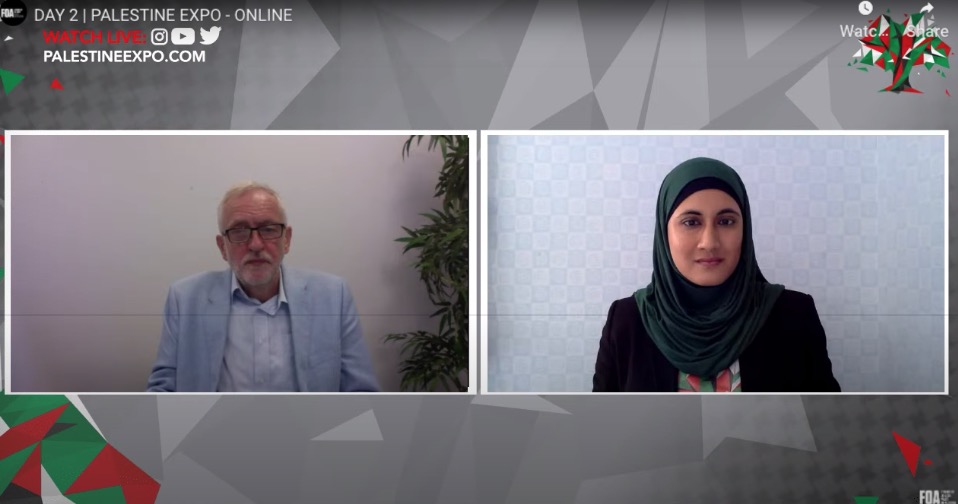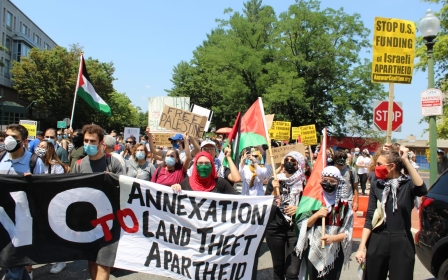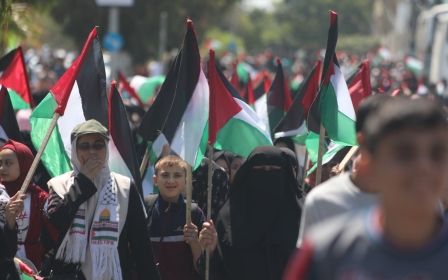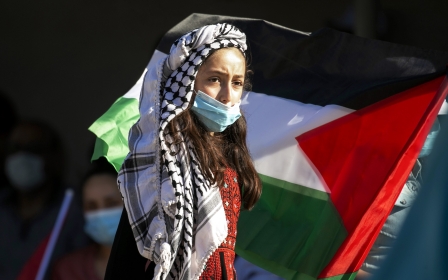'Wake-up call to the world': Pal Expo 2020 digital event dominated by annexation fears
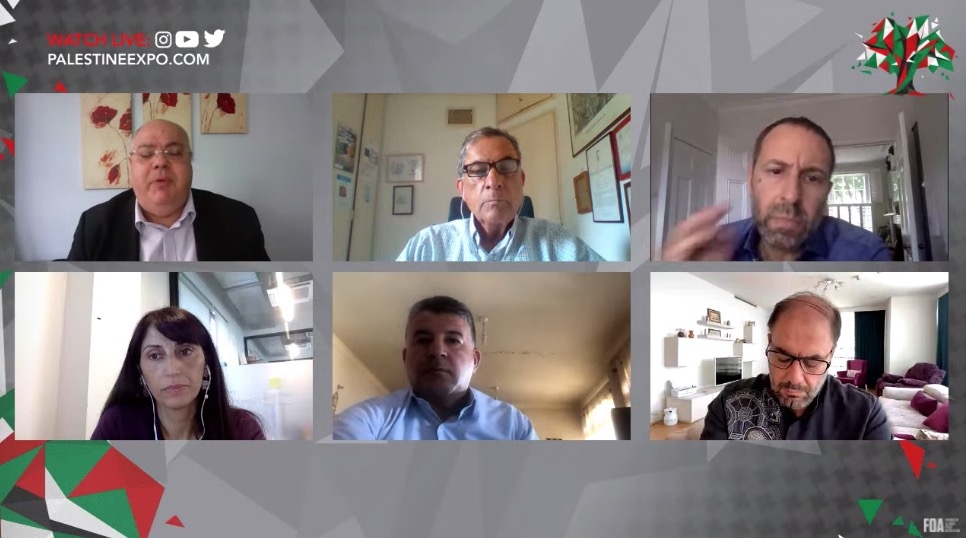
Palestine Expo, an event held to raise awareness on key Palestinian issues as well as celebrating the culture of its people, moved online this year due to the coronavirus pandemic.
The conference, now in its fourth year and the biggest Palestine heritage event in Europe, is organised by the UK-based non-profit organisation Friends of Al-Aqsa.
Covering an array of topics, including history, food, arts and culture, the two-day event, with over 350,000 people tuning in, gave viewers an insight into the Palestinian experience and heritage.
However, it was the issue of Israel's planned annexation of parts of the occupied West Bank that dominated much of the proceedings.
Some of the most notable speakers at this year’s event included Jeremy Corbyn, the former leader of the UK Labour Party; Diana Buttu, a Palestinian lawyer and analyst who served as a legal adviser to the Palestinian negotiating team from 2000 to 2005; and Wadah Khanfar, the co-founder of the Sharq Forum and former director of the Al Jazeera network.
A panel discussion was held on the battle for survival of the Palestinians, who were expelled and displaced from their homes in 1948, known as the Nakba.
The panel also looked at the plight of Palestinians in Israel, including political persecution and discrimination in daily life.
Ilan Pappe, a professor at the University of Exeter and writer on the history of Israel, Britain and the Arab-Israeli conflict, discussed the historical background of Palestinian communities in Israel.
“The Zionist movement is no different from the movement which genocided the Native Americans in North America and the aboriginals in Australia, and the apartheid [system] in South Africa,” he said.
"As a settler-colonial movement that wanted to eliminate the Palestinians from their land, the Zionist movement had the opportunity to do that in 1948 during the Nakba.
"In many ways, it both succeeded and failed in doing this, and this explains a lot of the Israeli policies.”
'Wake-up call to the world'
Kamel Hawwash, a British professor and the chair of the Palestine Solidarity Campaign, chaired a panel discussion on resisting annexation alongside a number of speakers.
During the talk, Khanfar spoke about the relationship between Arab countries and Israel.
“To say that Arabs are neutral or giving up on Palestine is factually not accurate, and I believe the current situation - where Arab leaders are trying to be closer to Israelis, and being silent on issues relating to annexation - does not represent anything related to the feelings or beliefs of the Arab world,” he said.
Gideon Levy, an Israeli journalist and author, called annexation a "wake-up call to the world".
“Israeli annexation started a long time ago … much before Benjamin Netanyahu dreamt of becoming Israel's prime minister … Israel has realised over the last few years that they can get away with anything and not have any accountability,” he said.
“The best way to resist annexation is to use it as a tool to change the discourse … for me declaring annexation is declaring Israel as an apartheid state, and this must ring a bell to anyone with a conscience in the world,” he added.
Corbyn spoke about Israel’s upcoming annexation plans, as well as the daily challenges and implications faced by Palestinians under Israeli occupation.
“As leader of the [Labour] party I was very keen to promote the policy of my party, which is the full recognition of the state of Palestine, but also to prevent the importation of goods from illegal settlements and also to prevent the sale of arms that can be used to attack civilians, which is what, unfortunately, the Israeli government forces have been doing towards Palestinians," he said.
"The annexation plan is a serious issue … this is not a new or novel situation because Israel did annex East Jerusalem and the Golan Heights in the past.
"Nevertheless, these two [cases] have been used by Israel as a precedent to annex [again]. This cannot be the precedent, it is illegal under international law,” he added.
Corbyn also used the panel to highlight Britain’s role in the international community and its historical obligations in stopping the annexation of Palestinian land, which have been given a green light under US President Donald Trump's controversial Israel-Palestine plan.
“Britain has a special responsibility in all of this, because after the Treaty of Versailles, Britain was given the mandate on Palestine. And also as a member of the UN Security Council, Britain has a special role to play in this," said Corbyn. "So let's come together and oppose the Trump plan.”
Inspiration
Other highlights of the event included a segment on Palestinian cooking, hosted by chef Maha Salah, where viewers were taken through how to make alayat banadoura, a tomato breakfast dish, using traditional Palestinian ingredients and techniques.
Also on the menu was qudsiyah, a fava bean and chickpea dish, topped with chopped tomatoes, parsley and olive oil.
A traditional Palestinian dance, known as the dabke, was also performed, and a number of Palestinian artists showcased their work while discussing the challenges they faced under occupation and talked about key themes and events that inspired their work.
The event also drew parallels between the Black Lives Matter movement - which rose to prominence following the killing in the US in late May of George Floyd, an unarmed African-American man - and the Palestinian struggle.
Middle East Eye delivers independent and unrivalled coverage and analysis of the Middle East, North Africa and beyond. To learn more about republishing this content and the associated fees, please fill out this form. More about MEE can be found here.


